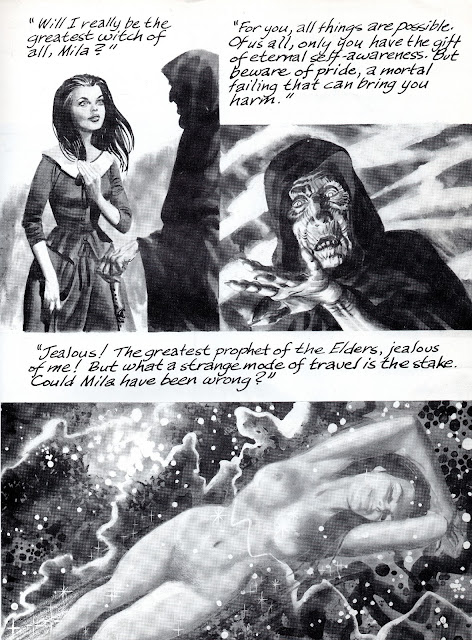It doesn't get any better than this. These images from Squa Tront #7 represent what Roy Krenkel was doing, un-commissioned, later in his life. In Squa Tront #7 they accompany several fantastic cover sketches for CREEPY and EERIE, but I wanted these images to stand alone. Since I first saw them I've felt strongly inspired by them; for me they contain a hint of anger and woe, though used quite positively. Somehow in these images I see Krenkel's awareness of his own history, his awareness of his then-current place in life, and lastly the rare and powerful ability to use this combination of introspection and realism with a fully unhinged and nightmarishly terrifying attention to pure, unbridled, dreamlike horror. The absolute understanding of Horror and the Unknown is exemplified with ease by one of EC's finest, enjoy ...
This one in particular strikes a chord in me. Remarkable.


















